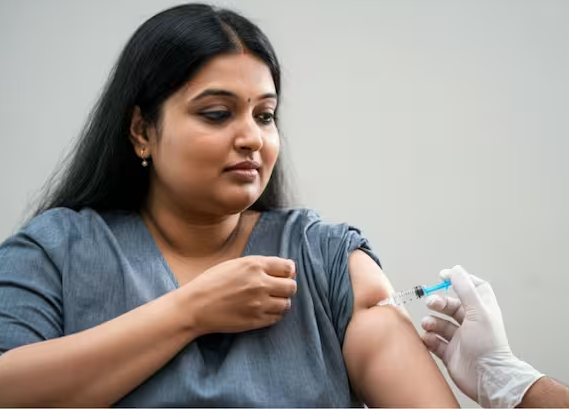If you take injections for weight loss, you may lose your eyesight; Scientists issued a warning.
- bySherya
- 14 Aug, 2025

Nowadays in this fast paced life, people are not able to pay much attention to themselves, due to which body weight starts increasing, and the belly bulges out. To avoid this, people are using injections.

Nowadays, people are adopting various measures to keep themselves slim and fit. Some are joining gyms and sweating for hours, while there are many people who are paying special attention to their dieting. Apart from this, there are some people who are choosing other options for this, such as using medicines and injections. These people are doing this so that they can reduce their weight as quickly as possible, so that they can look smart. However, this desire to look smart can make you sick, let us tell you how injections used for weight loss can be harmful for you.
weight loss injections
Nowadays, medicines like Ozempic, Wegovy and Mounjaro have become quite popular in the treatment of diabetes and obesity. These are called GLP-1 agonists. They work like a special hormone in the body, which reduces hunger, reduces weight and keeps blood sugar under control. But two recent studies have shown that the use of these medicines may slightly increase the risk of a serious eye disease. The name of this disease is NAION (Non-arteritic anterior ischaemic optic neuropathy), which is also commonly called 'eye stroke'. In this, the flow of blood to the vein of the eye suddenly decreases and vision is lost suddenly without any pain.
Research has already been done
NAION occurs suddenly and most people experience it when waking up in the morning when they lose vision in one eye. It stabilizes in a few weeks, but about 70 percent of people do not regain their vision completely. A 2024 study found that diabetes patients who were taking semaglutide had a 4 times higher risk of NAION. At the same time, this risk increased by 8 times in those taking it for weight loss. The European Medicines Agency has considered it a very rare side effect, that is, 1 case in 10,000. Recent studies found that the risk is not as high as previously thought. Out of 1,59,000 diabetes patients, only 0.04 percent had NAION. At the same time, other optic nerve diseases were also seen in some patients.
Additionally, GLP-1 drugs may slightly increase the risk of diabetic retinopathy, but the good news is that patients on these drugs experienced less major eye damage and required less invasive treatments.
What to do if you are taking these medicines?
- Get your eyes checked regularly.
- Tell your doctor if you are taking GLP-1 medications.
- In case of sudden loss of vision, consult a doctor immediately.
- Keep blood pressure, diabetes and cholesterol under control.
- Get treatment for heart health and sleep apnea.
Research is still ongoing, but these medicines can be taken safely with the advice of a doctor and eye specialist.





